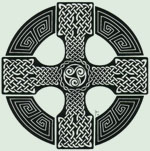*|MERGE4|*, *|MERGE5|*
 |
|
Links
|
|
Dear *|MERGE3|* *|MERGE2|*: 
On St. Patrick's Day, Americans of all stripes celebrate Irishness – or imbibe in all things Irish – without political or religious reservation. But being Irish in America wasn't always so carefree, primarily due to the issue of being Catholic in America. When the American colonial experiment began in the early 17th century, Europe was about to descend into the catastrophic Thirty Years War (1618–1648), which stemmed initially from conflicts between Catholics and Protestants. Beginning in 1642, the English Civil War pitted Parliamentarians and Puritans against King Charles I, whose opponents deemed to be not sufficiently Protestant. Against this backdrop, Irish Catholics – or any other kind of Catholic – were not welcome in Protestant-dominated colonial America (with notable exceptions in Maryland and Rhode Island). The cold war between Catholics and Protestants lasted well into the 20th century, finally deflating in 1960 when John F. Kennedy was elected the first (and only) Catholic president of the United States.
The history of religious pluralism in America is surveyed in the University of Massachusetts Press book, Religious Liberty in America: The First Amendment in Historical and Contemporary Perspective by Bruce T. Murray.
Religious Liberty in America is available at libraries throughout North America, and it may be purchased from the University of Massachusetts Press. *|MERGE6|* Read about the author on SageLaw. |



